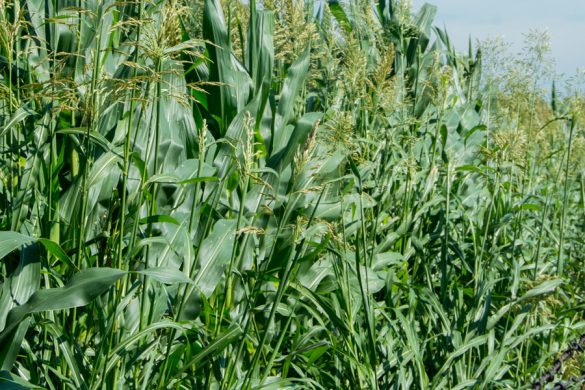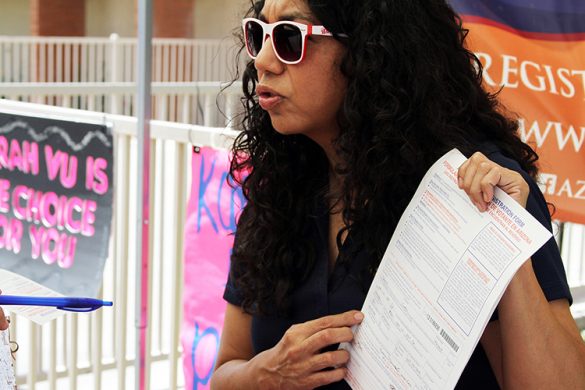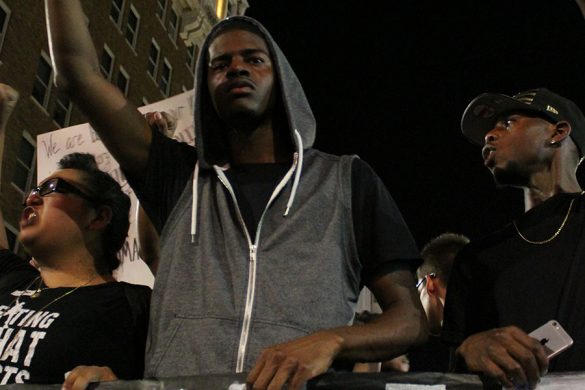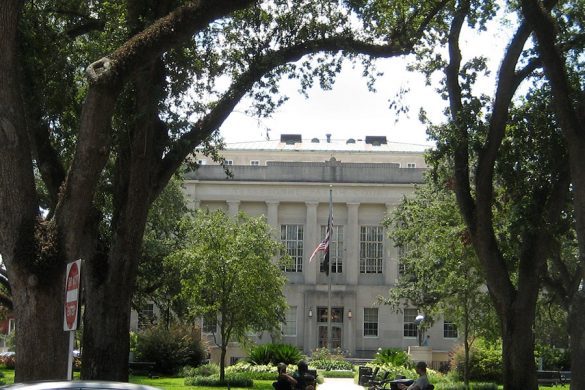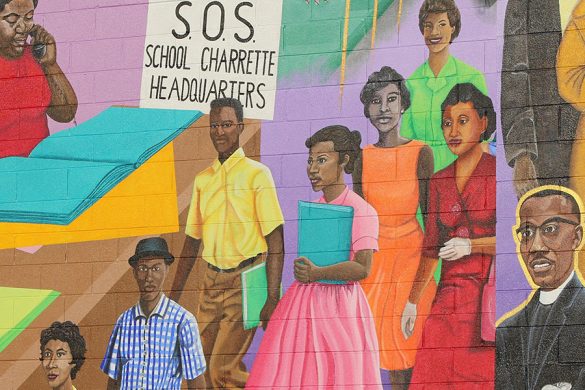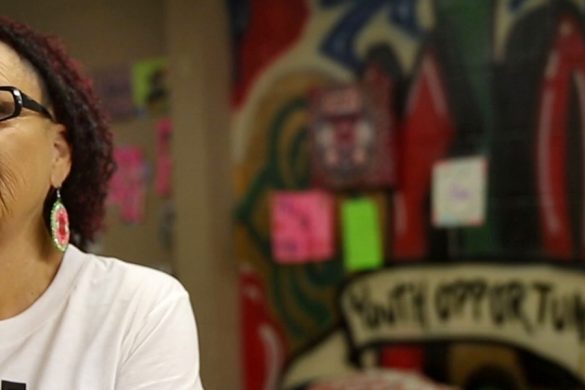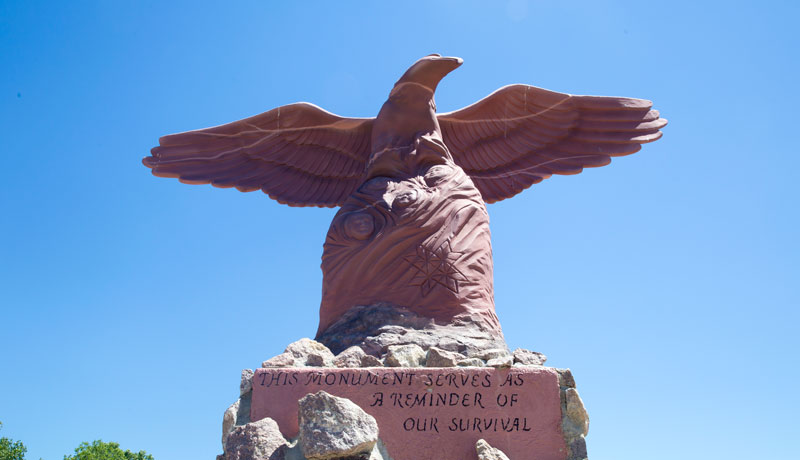
The memorial at the former site of the Tekakwitha Orphanage on the Lake Traverse Reservation near Sisseton, South Dakota. Children from nearby communities were taken from their families and brought to the orphanage for decades. (Photo by Mike Lakusiak/News21)
AGENCY VILLAGE, S.D. – Dustina Gill approaches young people roaming around the Sisseton-Wahpeton Oyate Wacipi – commonly referred to as a powwow.
Clipboard in hand, Gill asks them whether they’re 18 and if they have registered to vote.
She’s part of a voter registration effort targeting potential voters in South Dakota. Gill and some other volunteers hit the Wacipi, which takes place each Fourth of July weekend outside of Agency Village on the Lake Traverse Reservation. The grounds sit eight miles south of Sisseton.
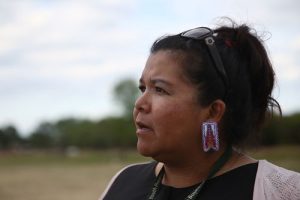
Dustina Gill (Photo by Mike Lakusiak/News21)
Gill has worked for nonprofits and youth programming on the reservation for years. She said she relies heavily on young people from the community for her voter registration and get-out-the-vote efforts.
“The youth I work with are the kids who aren’t straight-A students,” she said. “They’re the kids who miss school, the kids who’ve been to treatment, those kids that are never eligible for leadership opportunities because of the criteria.”
She said while the issues facing Native American youth on reservations have drawn national attention, young people still fall through the cracks.
“One of the things some of those kids really liked is getting out the vote and registering people,” she said. She described how they gathered across from polling places with signs reading “honk if you voted” on Election Day.
“It was their outlet,” she said. “During election year, they were straight, knocking on doors. I’m like, ‘I’ve tapped into something.’”
“It makes them feel involved in the process. … If I can make these kids growing up feel they’re part of some part of good history, imagine what they could be as adults.”
While taking a break at the Wacipi, she highlights the importance of voting and building more of that “good history” – especially given some of the atrocities Native Americans have faced.
She mentions a park the tribe recently built along the road from Sisseton. The park is the former site of the church-run Tekakwitha Orphanage, which operated between 1931 and 1986.
“They stole children,” Gill said. She described how the children housed there were not actually orphans, but they were taken from their families and traditions in an effort to assimilate them into American society.
There were many allegations of physical and sexual abuse at Tekakwitha, some of which were the subject of a lawsuit against the local Catholic diocese in 2010.
Gill’s grandmother was taken from her family at a young age and sent to Tekakwitha.
“She waited until it got dark, and she ran back,” Gill said. “Imagine a 4-year-old running for miles. She made it back home. They came the next day and took her again. Four times she did that.”
“Anytime in my life when I thought it was hard, I always thought of that little 4-year-old running in the dark.”
“If my grandma can do that so we’re here, I can survive whatever it is I’m going through. And there’s a lot of families that think like that.”
Come back Aug. 20 to see the full News21 report on “Voting Wars.”
